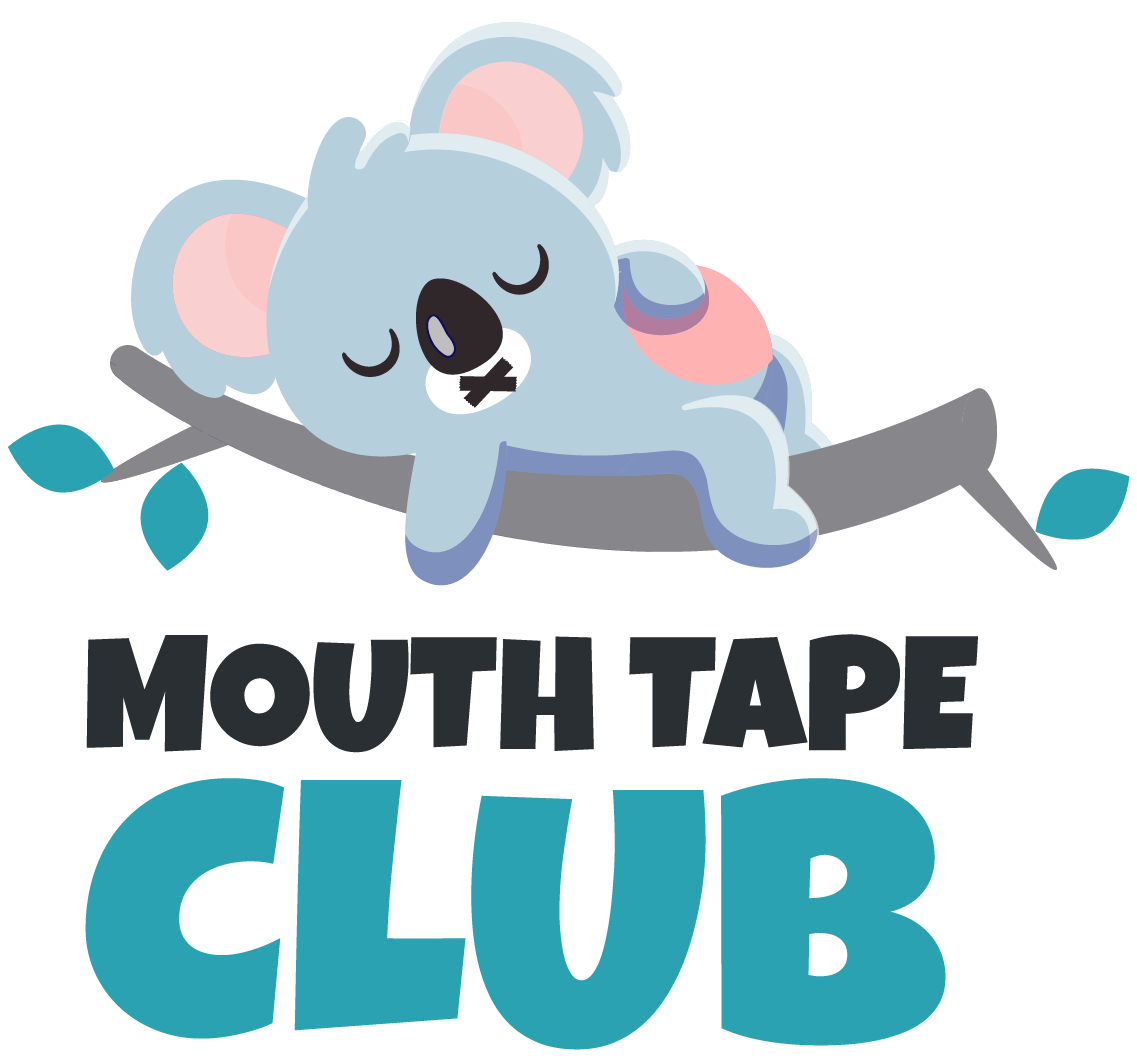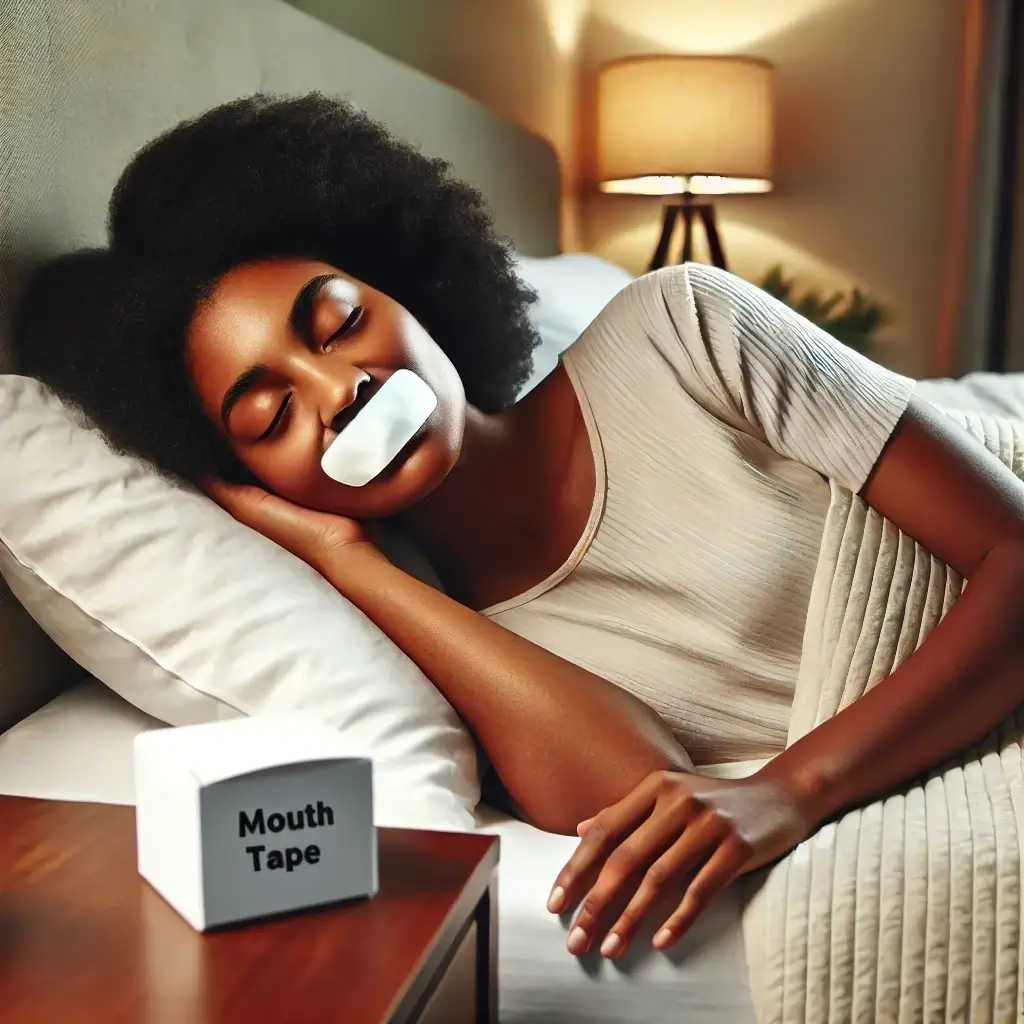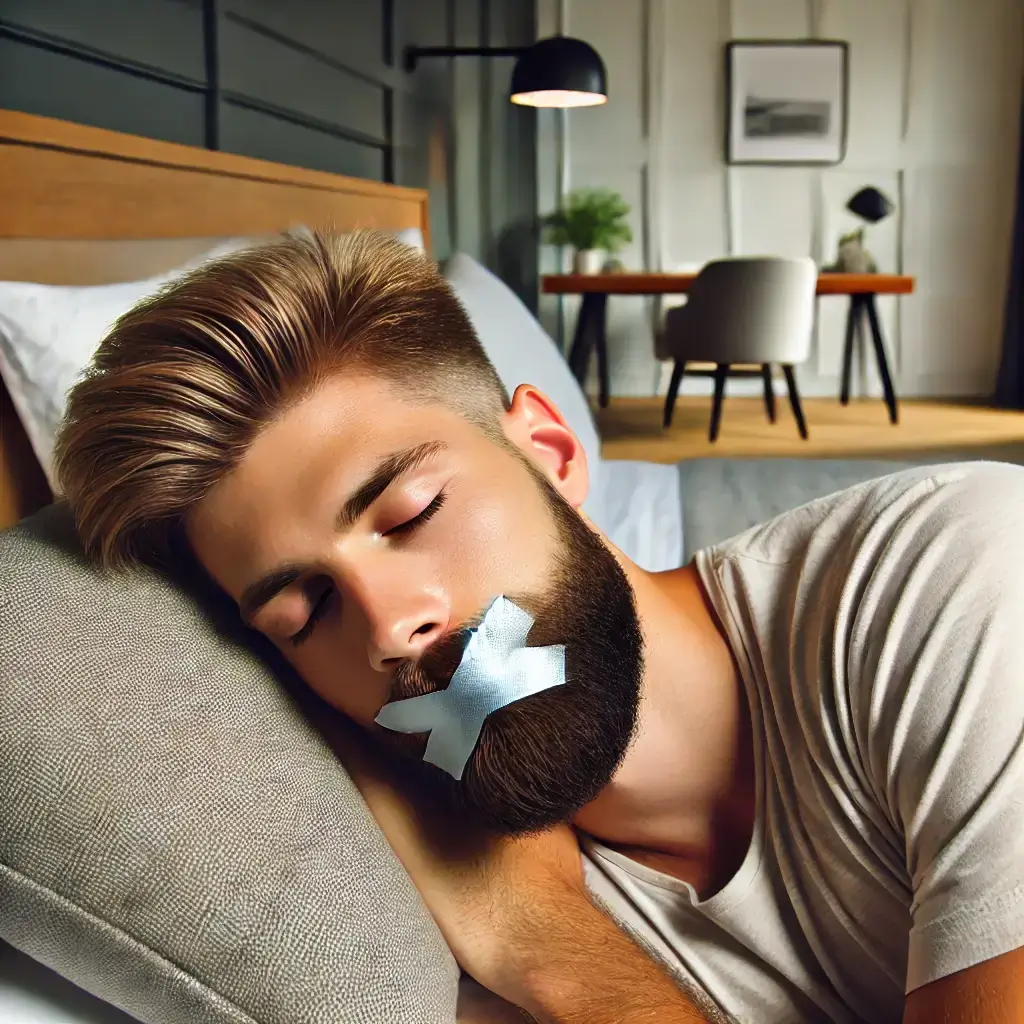What is mouth breathing, and how does it affect sleep and health?
Mouth breathing is breathing through the mouth instead of through the nose. This can cause sleep disruption due to increased snoring and difficulty obtaining an adequate oxygen supply.
Mouth breathing also increases the risk of developing mouth and throat infections, as well as increasing the risk of cardiovascular and other health problems.
Importance of fixing mouth breathing at night
Mouth breathing at night can affect your health and overall well-being. Not only does it disrupt your natural sleep cycle and lead to daytime fatigue, but it can also result in a wide range of health issues, including sinus infections, snoring, poor concentration, disrupted breathing patterns and more.
What causes mouth breathing during sleep?
Your body
Anatomical issues such as a narrow airway or enlarged tonsils can impede airflow through the nose and cause a person to breathe through their mouth.
Other causes of mouth breathing while sleeping can include:
- Allergies or sinus congestion
- Asthma
- Uncontrolled diabetes
- Sleep apnea
- Stress or anxiety
- Smoking
The position you’re sleeping in
Sleeping in certain positions can lead to mouth breathing because it can cause the airway to become partially blocked.
For example, sleeping on your back can cause the tongue and soft palate to relax and fall towards the back of the throat, partially obstructing the airway.
This can lead to snoring and mouth breathing during sleep.
Similarly, sleeping with too many pillows or in a position that causes the neck to be tilted upwards can also lead to airway obstruction and mouth breathing.
On the other hand, sleeping on your side or in a position that keeps the airway open can help to prevent mouth breathing.
Habitual mouth breathing
Habitual mouth breathing during the day can lead to mouth breathing at night because it can cause the muscles in the throat to become weakened over time.
When the muscles in the throat are weak, it can be more difficult to keep the airway open during sleep, leading to mouth breathing.
Additionally, habitual mouth breathing can cause the nasal passages to become congested, which can also contribute to airway obstruction and mouth breathing during sleep.
Finally, habitual mouth breathing can cause the mouth to become dry, which can lead to a reflexive opening of the mouth during sleep to moisten the mouth and throat. This can also contribute to mouth breathing during sleep.
Solutions for fixing mouth breathing while sleeping
Mouth taping
Mouth taping is a technique in which a small piece of medical-grade paper tape is placed over the mouth of a person who is sleeping to prevent them from breathing through their mouth.
The tape is applied onto the upper lip and cheekbones, covering the mouth completely.
It is non-invasive and typically painless while acting as a physical reminder to breathe through the nose instead of the mouth. It is an effective solution for those who suffer from mouth breathing while they sleep.
READ: Why You Should Tape Your Mouth Shut at Night
Nasal irrigation
Nasal irrigation is a technique that involves using a saline solution to clear the nasal passageways of respiratory secretions, debris, and allergens.
It can be done with a neti pot, special nasal rinse cups, or bulb syringes. When done consistently, nasal irrigation can help to keep the nasal passageways clear and reduce congestion, thus promoting nasal breathing during sleep.
Humidifier
Using a humidifier is another possible solution for those who are suffering from mouth breathing while they sleep.
Humidifiers improve the humidity in the air, which can help to reduce nasal congestion, dry throat, and other symptoms that can lead to mouth breathing.
It also helps to keep the throat and nasal passages moist while sleeping, thus promoting nasal breathing instead of mouth breathing.
Sleeping on your side
Sleeping on your side is another possible solution for those who are suffering from mouth breathing while they sleep.
Doing so helps to keep the throat and nasal passages open, thus promoting nasal breathing instead of mouth breathing.
When sleeping on your side, it is important to make sure that a pillow properly supports your head and neck to reduce any strain that might be placed on the airway.
Additionally, it is important to note that some people find it difficult to sleep in this position initially, and it may take some time to get used to
How to use mouth tape to fix mouth breathing
Step-by-step instructions for applying mouth tape
- Clean your skin thoroughly with an alcohol-free cleanser.
- Gently stretch the skin on either side of your mouth and apply the paper tape with the adhesive side facing you.
- Starting near the corner of your mouth, go up and across towards the other corner of your mouth.
- Gently press the tape onto your skin to ensure that it has stuck properly.
- Go to bed with your mouth taped shut and remove it in the morning.
Tips for making mouth taping more comfortable and effective
Before taping, apply a thin layer of moisturizer or petroleum jelly to the area to reduce skin irritation.
It’s best to use hypoallergenic paper tape, as regular tape can cause irritation, especially if you have a beard.
Change the tape every night to ensure that it’s still sticky
Regularly wash your face and skin to remove any oils that may reduce the effectiveness of the tape
If you experience any irritation, stop using the tape and seek medical advice
Recap of the benefits of fixing mouth breathing
Mouth breathing while sleeping can lead to a number of health problems, such as snoring, exhaustion, headaches, and difficulty concentrating.
Fortunately, a number of solutions available can help fix mouth breathing while sleeping, such as mouth taping, nasal irrigation, using a humidifier, and sleeping on your side. By taking advantage of these solutions, it is possible to reduce the symptoms of mouth breathing and enjoy a more restful night’s sleep.
Having a good night’s sleep is essential for our health and well-being, and mouth breathing can often prevent us from achieving this.
If you are suffering from mouth breathing while you sleep, it’s worth giving mouth taping or another solution a try to see if it helps.
It can make all the difference in achieving a restful and restorative night’s sleep.
References + Sources of Information
Jacono, A.A. (2020, April 23). Mouth Breathing: Causes, Treatments and Solutions. Retrieved March 08, 2021, from https://www.drjacono.com/mouth-breathing-2/
Levenson, M. (2020, September 29 ). How to Stop Mouth Breathing While Sleeping. Retrieved March 08, 2021, from https://www.verywellhealth.com/stop-mouth-breathing-while-sleeping-3015096
Nguyen, A. (2020, May 22). Nasal Irrigation for Improved Sleep Quality and Reduced Snoring. Retrieved March 08, 2021, from https://www.snoringmouthpiecereview.org/nasal-irrigation-for-improved-sleep-quality-and-reduced- snoring/
WebMD. (n.d.). Humidifiers for Bedroom. Retrieved March 08, 2021, from https://www.webmd.com/allergies/guide/humidifiers-for-bedroom#1
American Academy of Otolaryngology-Head and Neck Surgery: “Tonsils and Adenoids” https://www.entnet.org/content/tonsils-and-adenoids
American Academy of Sleep Medicine: “Mouth Breathing and Sleep” https://www.aasm.org/resources/socialdocs/krakow2008papnap.pdf
Mayo Clinic: “Mouth breathing: What’s normal and what’s not” https://www.mayoclinic.org/healthy-lifestyle/adult-health/expert-answers/mouth-breathing/faq-20058005
National Sleep Foundation: “Mouth And Throat Exercises to Help Stop Snoring and Improve OSA” https://www.sleepfoundation.org/snoring/mouth-exercises-to-stop-snoring
American Family Physician: “Mouth Breathing in Children” https://www.aafp.org/afp/2002/0301/p1093.html



